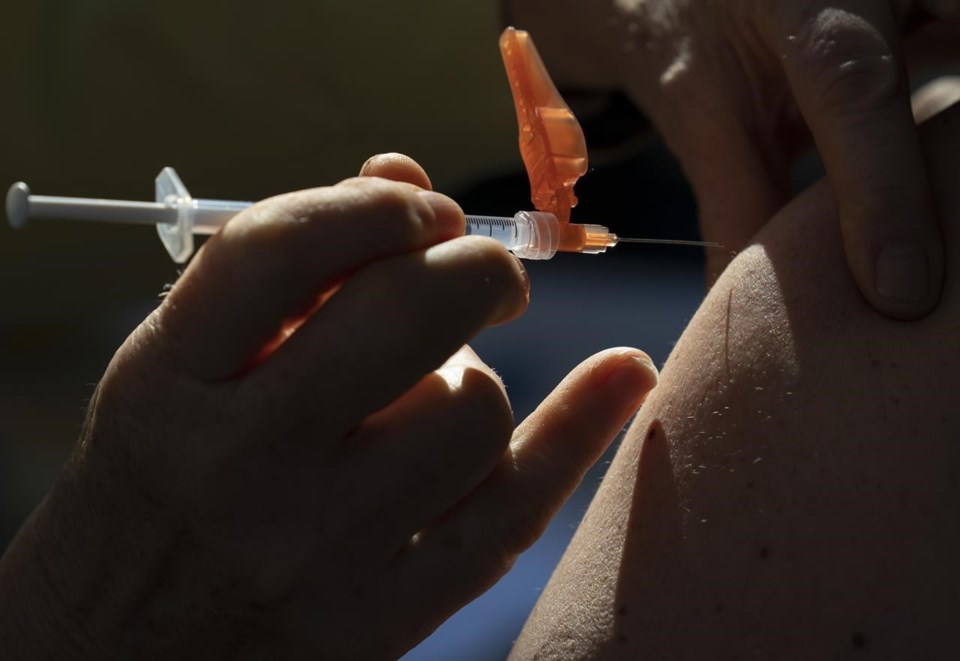VANCOUVER — British Columbia's initial shipment of the Oxford-AstraZeneca vaccine will be used to inoculate workers in vulnerable sectors including food processing plants and employees who live in congregate settings, health officials announced Monday.
Provincial health officer Dr. Bonnie Henry said 60,000 doses of the vaccine are being allocated to industries where the use of personal protective equipment can be challenging, and where outbreaks and clusters are ongoing.
Outbreaks from large industrial camps with shared accommodation have spilled into communities across the country as workers fly in and out of the camps, Henry told a news conference.
The highest-risk categories of work sites were identified through a task force established by Henry last November. They include places where poultry, fruit and fish are processed as well as agricultural operations and large industrial camps where close living quarters make isolation and quarantine difficult.
Henry said the province's committee is reviewing the latest data and recommendations from its federal counterpart to determine additional workplaces that will be prioritized for immunization with the AstraZeneca vaccine.
Concerns about blood clots affecting the lungs or heart have led some countries to suspend the use of certain lots of the vaccine, but Henry said that condition can sometimes be associated with COVID-19 itself. From an estimated 17 million doses of the vaccine, blood clots have occurred in 37 cases, she said.
"Health Canada is in touch with our counterparts in the U.K. and in Europe to make sure that we have all of the information about what they're looking at, what lot numbers are involved and what products are involved," she said.
Henry said Canadian officials are confident that similar risks are not being seen domestically.
Henry said she's working with faith leaders to safely resume in-person religious services and that information on allowing small numbers at outdoor gatherings for Easter and Passover will be provided next week. More details will also be coming about the safe resumption of indoor services for all faith groups, starting in April, she said.
British Columbia recorded 1,506 cases of COVID-19 since Friday, and 10 more people have died, for a total of 1,407 deaths.
Health Minister Adrian Dix said there are outbreaks at three long-term care facilities, down from 42 just two months ago, which is a signal that vaccines are making a difference.
The province has administered 409,103 doses of vaccine, and just over 87,000 people have received two doses, Henry said, adding mass clinics that began Monday are expected to ramp up quickly over the coming months.
The inoculation of vulnerable workers complements the province's age-based vaccination plan, which is one week ahead of schedule with seniors aged 84 and older, plus Indigenous elders 65 and up, currently booking appointments for a shot.
Dix said people aged 83 and older can make an appointment Tuesday and the age eligibility drops daily until anyone 80 and up can make arrangements for a jab by Friday.
An estimated 100,000 people are included in the 80- to 84-year-old group and phone appointments are the only way to make an appointment in all regions except Fraser Health, which has an online booking system.
Dix has said a provincewide online system is expected within weeks.
Monday also marked the launch of vaccination clinics across B.C. for Indigenous elders and seniors over 90 who already had appointments.
Clinics also began in Prince Rupert and Port Edward, where all adults are being immunized, regardless of age, due to high infection rates in the area.
This report by The Canadian Press was first published March 15, 2021.
Camille Bains, The Canadian Press




